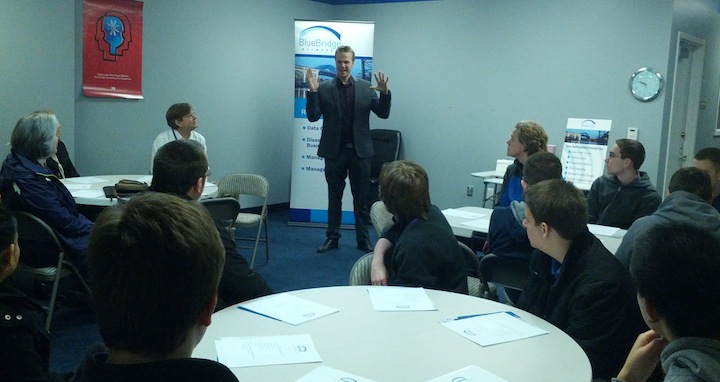
The value of mentorship in leadership and career development is a practice that is often underrated and underutilized. You never know what you are doing or saying when people are watching and listening and what a difference or an impact you may have on the rest of their careers (or lives) or their companies’ successes.
In the same manner, you may never know that what you are teaching is just the lesson you must learn again the most. The give and take of this trusted relationship is that, while you are expecting of others, you are inspecting yourself and your company. There is a symbiotic nature to a healthy mentor relationship. The reciprocity is that one reaffirms or challenges what is best for them by what they teach others. To teach is therefore to learn.
Keys to a successful mentoring relationship:
- Teachable
- Open, honest, and transparent
- Not a mutual admiration society
- Commit to the relationship
- Set goals
The key to launching this personal relationship is a willingness of both parties to remain teachable. No matter if one is right out of college or 10 or 30 years in a given field, they must recognize that they have something to teach and to learn. Pick someone you wish to be like when you “grow up.” People love to help others and most likely will be honored by your request to be mentored by them.
Like going into a doctor’s office, if you don’t tell the doctor where it hurts, you cannot be effectively helped. In the same manner, it is critical that you are open and honest with your mentor. Tell them what your struggles and successes are and be where you are at. Tell them what is really happening on the job, company, and in your field. Let them know your skill sets and your perceived strengths and weaknesses.
Understand that you will not like or even seem to appreciate insights that are brought to your attention. You have not entered into this relationship to always be built up. You are both going to be challenged in your long-held beliefs about your own capabilities and approaches. The more some insight or information learned here affects you, the more you will benefit by taking a closer look at the issue at hand. The best result from these challenges is not only going to come when one affirms their beliefs or approaches but more so when the insight inspires a paradigm shift.
Imagine the gain of one having their blind spots illuminated. These revelations about oneself can be the very catalyst to cause you to challenge your comfort zone and become a better you — a more efficient leader and employee as well.
It is good to commit to the relationship and keep a discipline to make scheduled meetings and calls. Make this endeavor a priority. Building trust takes time, and time and production equals credibility. The old adage “you get out what you put in” holds true in these important business relationships. Be present and bring your best when you vet, listen, describe, brainstorm, and role-play.
Set goals you both want to manifest from participating in the mentoring relationship. Position the dynamics of your interactions with a stage of candor. Be prepared to both bring and receive goals. Goals and the process of obtaining them are stepping stones in a career and a successful mentor relationship. Check in on the goals from time to time — note and celebrate progress.
A powerful mentoring relationship does not have to be dramatic. It can be a seemingly subtle one that can light a fire, incite, inspire, launch, and cause intelligent calculated risks, change or growth. Many times I look back in my relationships in business to be able to see the small steps over time that bridged huge gaps and paved the way to help me.
Recently I celebrated my 50th birthday, and of the many gifts – calls, cards, and notes — I received, here is the one I will cherish most from my 10-year-old son Daniel. It is a validation and reminder of the value of “To Teach is to Learn”:
To Popa: Happy Birthday! Your #1 and I’m #2 and I say that on all my cards, but for you I really mean it! I look up to you. You are the only reason I don’t think it’s bad to be small because how strong and successful you are at 5’6”. I am 4’6”and I am small and you are a foot taller than me and I am 10! It doesn’t matter how small you are, it only matters how nice you are said Popa- and that’s why I don’t complain about being small.
Love, Danny
Take a risk and be a mentor or find a mentor. If you write the script yourself, you may shortchange yourself and others.
Link to CBC Magazine: http://cbcmagazine.com/2013/04/01/mentoring-to-teach-is-to-learn/